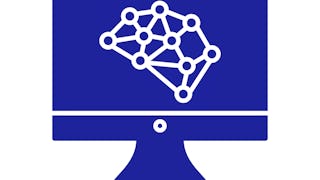Filter by
SubjectRequired
LanguageRequired
The language used throughout the course, in both instruction and assessments.
Learning ProductRequired
LevelRequired
DurationRequired
SkillsRequired
SubtitlesRequired
EducatorRequired
Explore the Kalman Filter Course Catalog
 Status: Free Trial
Status: Free TrialUniversity of Houston
Skills you'll gain: Medicare, Care Management, Medical Management, Primary Care, Health Systems, Health Care Administration, Nursing Management, Health Care, Healthcare Industry Knowledge, Health Care Procedure and Regulation, Health Policy, Long Term Care, Value Propositions, Patient Education and Support, Continuous Quality Improvement (CQI), Systems Of Measurement
 Status: Free Trial
Status: Free TrialColumbia University
Skills you'll gain: Computer Vision, Image Analysis, Dimensionality Reduction, Artificial Neural Networks, Unsupervised Learning, Deep Learning, Graph Theory, Machine Learning Algorithms, Machine Learning, Feature Engineering
 Status: Free Trial
Status: Free TrialLearnQuest
Skills you'll gain: Time Series Analysis and Forecasting, Demand Planning, Trend Analysis, Data Visualization, Customer Demand Planning, Regression Analysis, Matplotlib, Forecasting, Predictive Modeling, Supply Chain Management, Data Analysis, Exploratory Data Analysis, Pandas (Python Package), Statistical Modeling

Johns Hopkins University
Skills you'll gain: Probability, Bayesian Statistics, Probability Distribution, Risk Modeling, Mathematical Modeling, Statistical Inference, Markov Model, Reliability, Simulations, Applied Mathematics, Statistical Analysis, Regression Analysis

MongoDB Inc.
Skills you'll gain: MongoDB, Database Management, Databases, NoSQL, Data Modeling, Query Languages, Data Integrity, Performance Tuning, Scalability

Skills you'll gain: Time Series Analysis and Forecasting, Exploratory Data Analysis, Feature Engineering, Statistical Analysis, Forecasting, Regression Analysis, Python Programming, Data Analysis, Predictive Modeling, Pandas (Python Package), Scikit Learn (Machine Learning Library), Machine Learning Algorithms, Supervised Learning, Data Cleansing, Data Transformation

University of Rochester
Skills you'll gain: Innovation, Business Priorities, Commercialization, Prioritization, New Product Development, Entrepreneurship, New Business Development, Market Opportunities, Decision Making
 Status: Free Trial
Status: Free TrialSkills you'll gain: Microsoft Azure, Relational Databases, Databases, Cloud Storage, Analytics, Data Storage, Data Lakes, NoSQL, Cloud Computing, Data Warehousing, SQL, Test Planning
 Status: Free Trial
Status: Free TrialMicrosoft
Skills you'll gain: Microsoft Azure, NoSQL, Database Administration, Data Store, Database Systems, Cloud Storage, Database Theory, Data Storage, Cloud Services, Data Storage Technologies, Data Security, Query Languages, Application Programming Interface (API)

Coursera Project Network
Skills you'll gain: Generative AI, Keras (Neural Network Library), Tensorflow, Deep Learning, Dimensionality Reduction, Applied Machine Learning, Anomaly Detection, Data Processing, Data Visualization, Data Synthesis
 Status: Free Trial
Status: Free TrialSkills you'll gain: HVAC, Building Codes, Thermal Management, Energy and Utilities, Control Systems, Equipment Design, Mechanical Engineering, Environmental Monitoring, Mechanical Design, Engineering Calculations
 Status: Free Trial
Status: Free TrialCloudera
Skills you'll gain: SQL, Apache Hive, Big Data, MySQL, Query Languages, Databases, Apache Hadoop, PostgreSQL, Data Manipulation, Data Analysis, Virtual Machines
In summary, here are 10 of our most popular kalman filter courses
- Value-Based Care: Introduction to Value-Based Care and the U.S. Healthcare System: University of Houston
- Visual Perception: Columbia University
- Demand Forecasting Using Time Series: LearnQuest
- Introduction to Uncertainty Quantification: Johns Hopkins University
- Introduction to MongoDB: MongoDB Inc.
- Regression & Forecasting for Data Scientists using Python: EDUCBA
- Technology Commercialization, Part 1: Setting up your Idea Filtering System: University of Rochester
- Preparing for DP-900: Microsoft Azure Data Fundamentals Exam: Microsoft
- Microsoft Azure Cosmos DB: Microsoft
- Data Balancing with Gen AI: Credit Card Fraud Detection: Coursera Project Network










